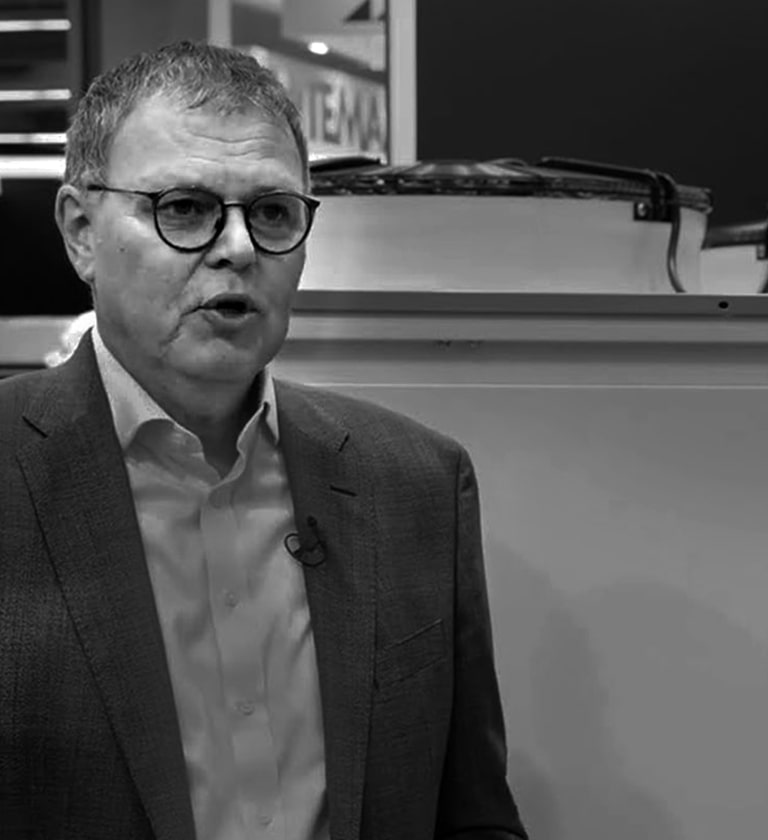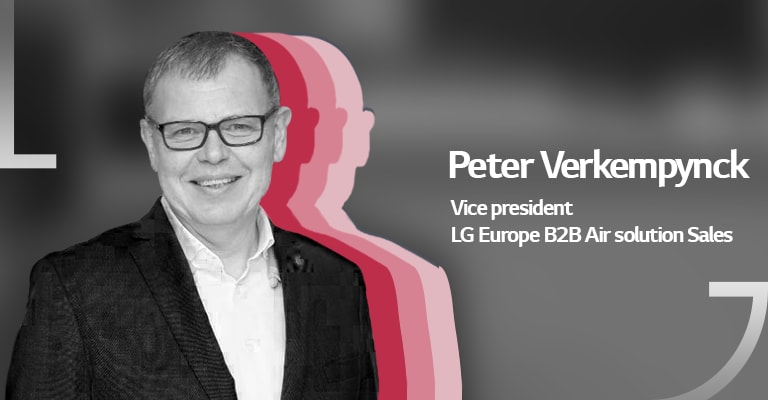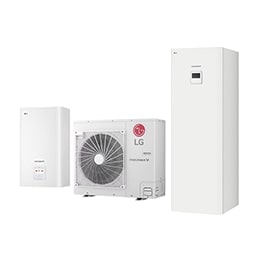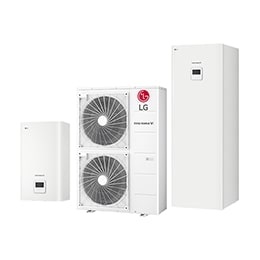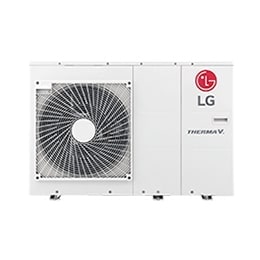We use cookies, including cookies from third parties, to enhance your user experience and the effectiveness of our marketing activities. These cookies are performance, analytics and advertising cookies, please see our Privacy and Cookie policy for further information. If you agree to all of our cookies select “Accept all” or select “Cookie Settings” to see which cookies we use and choose which ones you would like to accept.
Winter is here and heat pumps have become a hot issue this season. Peter Verkempynck, Head of LG Europe Sales and Marketing, took the time to share some insight into the state of the heat pump market and the future of heat pumps. Join us for this opportunity to learn about the factors impacting the heat pump market and what we can expect going forward.
Thank you for joining us. Please tell us a bit about yourself and what you do at LG.
Thank you for having me. I’m Peter Verkempynck, Vice President of Business Solution EU, Head of Sales and Marketing EU Air solution.
My primary role is to grow the Air Solution business in Europe through the promotion of RAC and air-source heat pumps into the residential heating segment and other DX equipment into the commercial heating and cooling segment.
Thank you for joining us. Please tell us a bit about yourself and what you do at LG.
What’s Happening in the Heat Pump Market Today?
1. What do you think is driving the expansion of the heat pump market in Europe?
In 2021, we were surprised to hear from the European Heating Industry (EHI) that 1 million air-source heat pumps had been installed. REPowerEU is the newest driver from the EU Commission to quickly reduce the use of fossil fuels, aiming to have 60 million heat pumps installed by 2030, which would mean an average of 5 million per year.
2. Are consumers more concerned with energy costs or the environmental impact when it comes to heat pump investment?
The impact on the end user's wallet is the biggest driver for people to invest in a heat pump. A limited number of people are doing it out of environmental considerations. It is therefore crucial that we monitor the Euro/Kwh ratio of gas/electricity and compare it with the SCOP of an air-source heat pump.
3. Are government subsidies actually easing the financial burden on end users?
The current incentives are put in place to bring the cost of a heat pump installation close to that of a boiler installation. As such, the reduction in energy bills is the actual net benefit for the user. At the moment, there are schemes that compensate much more of the capex but I am sure that this is only temporary.
4. How has the energy crisis impacted the European heat pump market?
There is a substantial impact on the demand for air-source heat pumps due to the energy crisis. In particular, the potential shortage of gas is driving the demand for air-to-water heat pumps. We’ve also noticed an increased demand for air-to-air heat pumps as a cheap solution for lower energy-cost heating.
5. In Europe, heat pump sales growth is remarkable compared to other heating products. What makes LG competitive in the market?
We have to expect that the market will continue to grow as much as 60~70%, however, our greatest appeal today is the fact that we have been able to follow market demand and supply units while most of our competitors are accepting new orders for delivery somewhere towards Q4 of 2023 and beyond.
What Does the Future Hold for Heat Pumps?
1. How long can we expect government subsidies for heat pumps to continue?
There is no indication of how long the incentives will be available. However, we have to learn from the past and be conscious that incentives can be eliminated at any time like in Italy where the 110% bonus has been canceled.
2. Would a “home energy package” that combines heat pumps with ESS and PV interest European consumers?
Packaged sales are only starting to gain traction, mainly because the route-to-market is not yet established, and is mainly driven by government support initiatives. For LG however, the combination of AWHP and ESS is an important feature and differentiates us from the established players and could help to strengthen our AWHP position. There is surely demand from certain route-to-market players.
3. If government subsidies are to disappear, how will this affect heat pump sales?
Initially, heat pump volumes will not be affected as there is no alternative. However, huge pressure on margins and cost prices will emerge. We need to discuss our options and prepare a plan B going forward.
4. How will regulations impact European consumers’ choices concerning low-carbon emission initiatives?
Actually, Europe aims to be carbon neutral by 2050, and to make that happen, the EU regulations are changing to eliminate fossil fuel-burning heating solutions from the market. In order to accomplish this, they are implementing rules and regulations forbidding the installation of gas boilers in new construction projects. I believe that the majority of EU citizens react either because they have to or because it has an important financial impact. Having said that, we see that the younger generations are more influenced by environmental issues.
5. Considering the trends in each country and industry along with the fact that F-gas regulations have yet to be approved by European Parliament, how much longer do you think the use of R32 with be maintained?
I don’t have a crystal ball to predict what will finally be decided concerning the F-gas phase-out plan.
I guess it will be somewhere between the current plan (2025 for monoblocs) and the latest proposals to delay to 2030. So maybe 2027.
In my opinion, we should continue with our current product roadmap. We will have the opportunity to run the R32 and R290 lines parallel and maybe position the R290 over the R32 for the time being due to the strong and differentiating USP. An R290 unit will have to match the R32 price point and, in the mid-term, be even cheaper to put on the market. But, ultimately, the marketing benefit of R290 over R32 is not in the gas itself but in the perceived benefits and USPs for a user.
6. Finally, please introduce some of your predictions about the future of the heat pump market alongside LG’s strategy.
Until today, we have made important, although minimum, investments that have helped to deliver this year's result. The R&D investments in a new platform and R290 know-how is important for future sales and the development of our capabilities that need to be resolved in order for us to reach our goals in the mid-term. We have to understand that ultimately heat pumps are a commodity and we need to add value to that commodity if we want to compete with the established brands.
LG Heat Pump Product Line
*Products and solutions may vary according to country and operating conditions.
Please click the 'INQUIRY TO BUY' banner below to contact your local LG office for further information on solutions and products.
Contact Us
Please contact us for more information, and we will get in touch with you soon.
